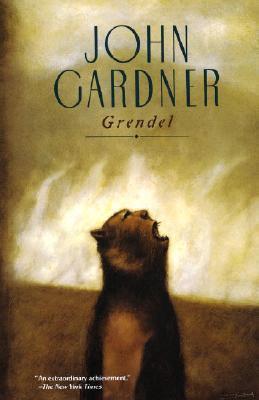Chapter 4
byChapter 4 intricately explores the theme of duality through the contrasting figures of the Shaper and Grendel. The Shaper, a master of art and music, uses his talents to breathe life into Hrothgar’s meadhall, transforming it into a space of unity and celebration. His songs, rich with tales of heroism and glory, pull the people together, forging a collective identity rooted in joy and pride. As they gather in the meadhall, Grendel, observing from a distance, is faced with the sharp contrast between the world the Shaper creates and his own dark, violent nature. The music and celebration seem to offer peace and purpose to the Danes, but for Grendel, they serve only to magnify his alienation and loneliness. He feels increasingly distanced from the happiness around him, as the Shaper’s art emphasizes everything he can never be—a force of light, hope, and unity, while Grendel is only darkness and isolation. The chapter highlights Grendel’s struggle to reconcile these opposing forces within himself, his internal conflict becoming more intense as he witnesses the power of the Shaper’s creation.
Hrothgar’s ambition to establish a meadhall represents his dream of leaving a legacy of glory and power for future generations. The construction of the meadhall is not just a physical endeavor, but a symbol of the king’s desire for immortality through his people’s admiration. Craftsmen and workers gather to bring this grand vision to life, with their efforts focused on creating a space of celebration and communal pride. Yet to Grendel, the meadhall and its surrounding festivities are little more than a facade, a distraction from the brutal truths that lurk beneath the surface of their world. Grendel views the revelry as a tool of flattery, a way for the Danes to avoid facing the violence, death, and suffering that are inevitable parts of life. His growing bitterness stems from this realization, as he watches Hrothgar’s dream unfold, aware that it is built on lies and self-deception. He becomes more and more disillusioned with the hollow nature of the celebrations, questioning whether the Shaper’s art truly has the power to reshape the brutal realities of existence into something beautiful and meaningful.
As the Shaper’s songs fill the meadhall, Grendel is torn between admiration for the music and an overwhelming sense of anger. The songs evoke visions of unity and camaraderie among the Thaness, but these images seem distant and unreal to Grendel, who views humanity’s darker instincts as inescapable. He cannot ignore the violence and destruction that continue to shape the world around him, and he is frustrated by the contrast between the Shaper’s idealized world and the harshness of reality. In a fit of frustration, Grendel is consumed by the futility of his existence and the overwhelming contradictions of life. The Shaper’s art promises peace, unity, and progress, but Grendel is left questioning the value of these illusions in a world where violence and destruction are constants. His internal conflict deepens as he is unable to accept the notion of redemption or change, particularly as he stumbles upon the lifeless body of a man—an undeniable reminder of the brutal reality that the Shaper’s art seeks to obscure. This grim discovery marks a turning point for Grendel, who, in his anger and despair, retreats into the forest, further entangling himself in his thoughts of self-loathing and frustration.
In this chapter, the reader is drawn into a profound examination of the duality between creation and destruction, beauty and horror, as embodied by the Shaper and Grendel. The Shaper’s ability to craft stories of heroism and peace contrasts sharply with Grendel’s perception of the world as a place of violence and suffering. Grendel, while not entirely dismissing the Shaper’s power, resents the beauty that he can never embody. His deep sense of alienation intensifies as he contemplates his role in a world defined by fear and hatred, unable to reconcile his existence with the noble ideals projected by the Shaper’s art. This inner turmoil is compounded by his growing understanding of the limits of human endeavor and the existential weight of his own existence. Ultimately, the chapter highlights Grendel’s search for meaning in a world where beauty is built on illusions, and the harsh truths of life cannot be easily ignored or forgotten. As the chapter draws to a close, Grendel’s departure into the forest symbolizes his retreat into himself, where he is left to grapple with the conflict between the beauty he sees in the world and the darkness that defines his own nature.

